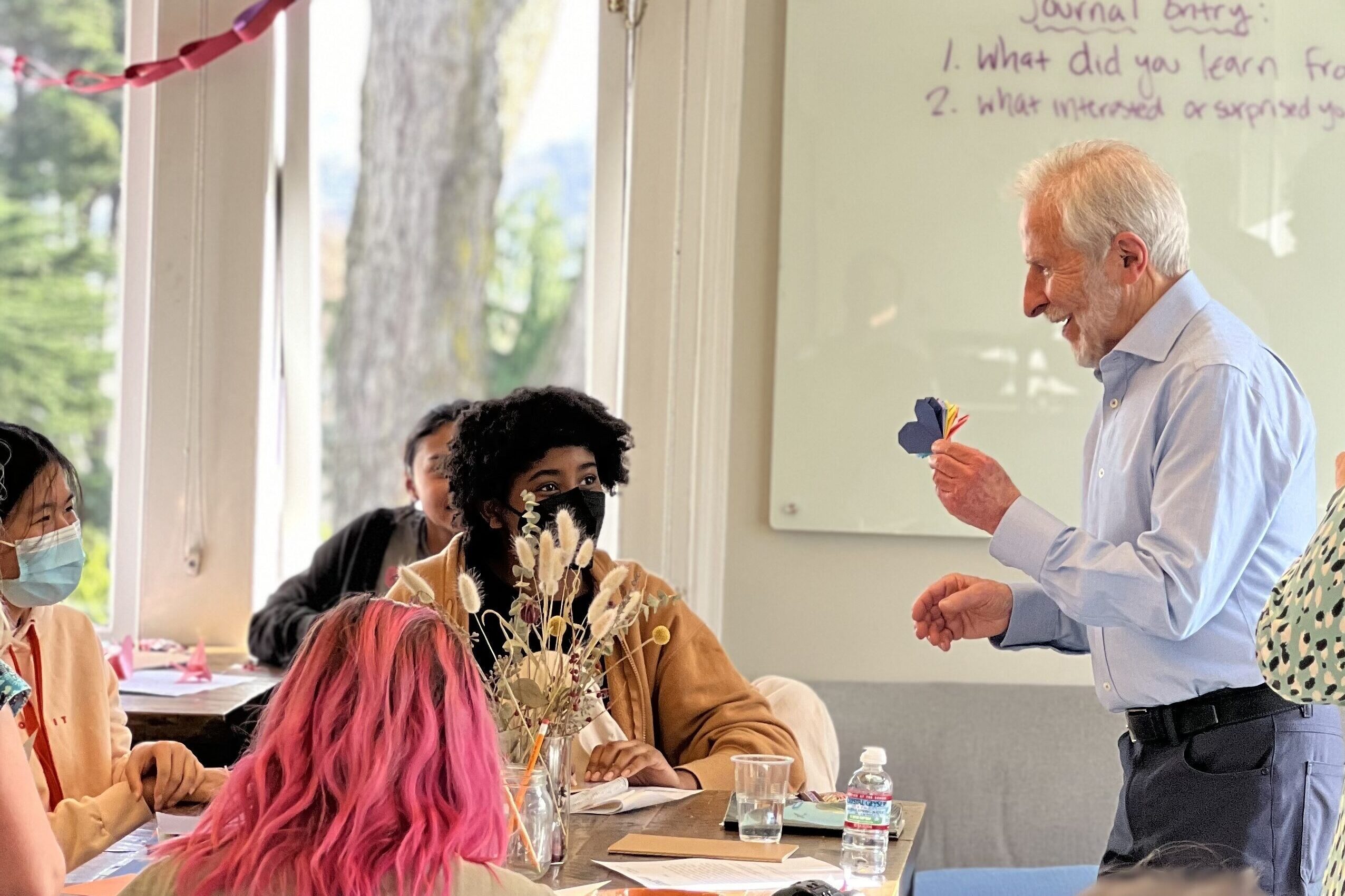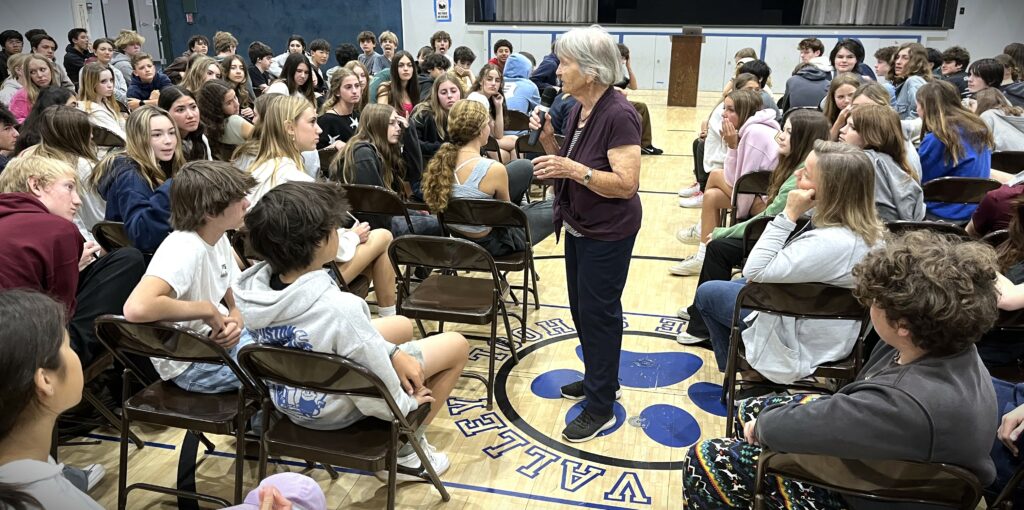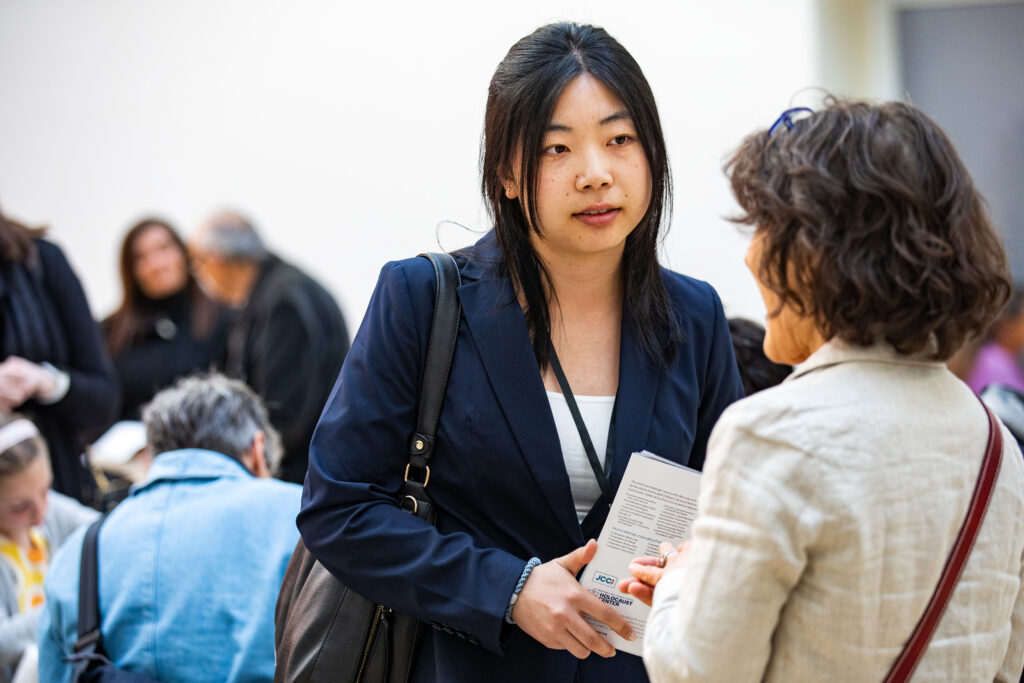The Lasting Impact of Holocaust Education on Young Lives

What do young people gain from learning about the Holocaust and genocide? A recent study measuring the impact of Holocaust Center initiatives makes the answer clear: quite a lot.
At a Glance: The Impact of Holocaust Education
• Greater empathy and courage in confronting hate
• A deeper sense of civic responsibility
• Enriched Jewish identity and cultural pride
• A lasting awareness of dehumanization and injustice
• Stronger media literacy and critical thinking skills
Students who participated in programs with the JFCS Holocaust Center reported life-changing growth in both their understanding of history and their sense of moral responsibility. One participant reflected:
“I feel like [the program increased my] ability to empathize with folks who’ve been through real struggles and have really hard stories.”
Many others echoed this sentiment, describing how their time with the Center shifted the way they see the world.

What Students Remember—and How They Use It
A major strength of the study is that it draws from 48 alumni survey responses and 13 in-depth interviews from participants in five different Holocaust Center programs (including Manovill, The Next Chapter, University Fellowship, Conversation Circle, and Legacy Tours) between 2012 and 2022.
Knowledge Retained
Alumni consistently recalled three core lessons:
- Survivor testimony—the human face and stories behind history
- History of genocides—beyond the Holocaust alone, including Armenian, Bosnian, Cambodian, Rwandan, Indigenous Peoples of California, Uyghur, Yazidi, and others
- Propaganda and how dehumanization develops as a tool of genocide
Many alumni described how they continue to apply this knowledge—whether by teaching others, analyzing media critically, or resisting dehumanizing narratives in real time
Skill Development
Beyond content, participants pointed to critical academic and civic skills that the programs fostered:
- Research, teaching, and speaking skills
- Critical thinking and media literacy—alumni said they became more discerning about what they consume online and more thoughtful about how information is presented.
- Note-taking, analysis, writing discipline—many credited program practices with strengthening their study habits and intellectual confidence.
One alumna described how the program gave her:
“the confidence … to talk about something that, like, a lot of people don’t know about,” after studying the Rwandan genocide in depth.

How the Impact Shows Up in Life
Every young person who participated in the study described being influenced by their time with the Holocaust Center. For many, the experience changed the way they learn, the way they act, and the way they see themselves in the world.
Educational Trajectories
For many alumni, Holocaust education became a turning point in their academic journey. Some chose to study genocide, human rights, or Jewish history; others shifted their paths entirely after discovering new purpose through the Center’s programs. One participant described moving from a business track to a liberal arts curriculum, inspired by the seminar-style discussions and the courage to ask harder questions.
Personal and Professional Growth
Nearly half of those surveyed said the programs shaped their professional goals. Some were inspired to pursue work in education, museums, or social advocacy. Others spoke about more personal shifts—becoming more open to difference, more curious about others’ experiences, and more grounded in empathy as a guiding value.
Several alumni also reflected on how the experience deepened their Jewish identity. As one alumna shared:
“I felt that both Manovill and Next Chapter had a transformational effect on my identity and my understanding of that identity [as a Jewish person].”
Civic Responsibility and Engagement
Many participants said the programs strengthened their sense of moral responsibility. They came to see that confronting hate isn’t only the work of institutions—it’s something each of us must do. Alumni described speaking up when they see bias, encouraging others to get involved, and using their media literacy to question harmful narratives and misinformation.
Lifelong Learning and Advocacy
Perhaps most strikingly, nearly all alumni remain engaged. They continue to learn about the Holocaust, genocide, and antisemitism, and to carry those lessons into their communities—as educators, writers, museum professionals, and advocates. One alum even visited Sarajevo and Srebrenica after studying the Bosnian genocide, determined to see for herself the places and stories that had once felt far away.
The study’s findings affirm what we see every day at the Holocaust Center: that education about the Holocaust and genocide doesn’t end in the classroom—it becomes a lifelong commitment to empathy, learning, and justice.



